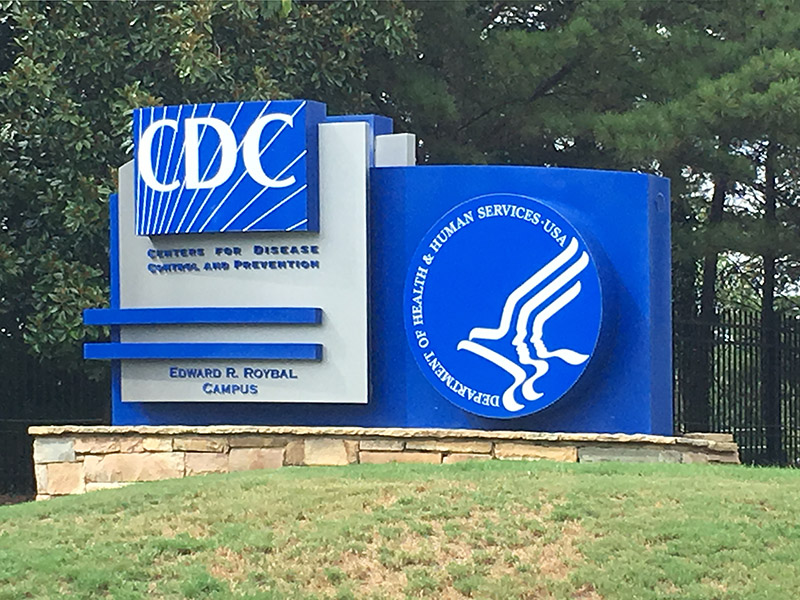HIV advocate reflects on arrest while protesting Senate health care bill

On Wednesday, June 28, Eric Sawyer and about 10 other HIV activists were arrested while engaging in civil disobedience in protest of the Republican-led Senate’s version of a health care reform bill that they say will be devastating to those living with HIV.
It’s not a new experience for Sawyer, who is the vice president of public affairs and policy at the New York-based Gay Men’s Health Crisis and a founding member of Housing Works and ACT UP, the grassroots group of activists credited with raising awareness of the AIDS epidemic in the 1980s and 1990s.
The protesters were arrested in the hallway outside of Sen. Lisa Murkowski’s (R-Alaska) office. Murkowski is considered a crucial swing vote in the health care fight. If three or more Republican members vote against the bill, it has no chance of passing the Senate.
After their arrest at around 2 p.m., Sawyer and the other activists were put in a holding cell at Capitol Police headquarters, where they were kept in custody for almost 10 hours without food or bathroom breaks as they were shuttled between various briefing rooms.
“The thing we’ve learned over time is you have to speak truth to power, and you have to be willing to challenge people in ways that make them uncomfortable as well as yourselves,” he says. “You basically have to confront people in away that they know you’re serious about your opposition.
“If you let people basically do whatever they want behind closed doors, horse-trade small favors, in order to give away the right to healthcare for their citizens to get some minor special interest desire filled, the people of the U.S. and individual states are going to suffer,” Sawyer adds, noting that the publicity that comes from being arrested and the chaos that results from people engaging in civil disobedience and disrupting normal proceedings can give lawmakers pause before throwing their full support behind the Republican health care reform bill.
This week, Sawyer has been on Capitol Hill with AIDS United, a coalition of 40 service organizations that help provide health care and other support for people living with HIV, particularly low-income populations. Group members have been meeting with senators from both parties, hoping to educate them about the impact that the Senate effort to repeal and replace the Affordable Care Act would have on vulnerable communities.
Chief among their objections to the Senate bill are that, by repealing the Affordable Care Act, it will remove the avenue by which 22 million people currently access health care via expanded Medicaid or federal subsidies used to purchase private insurance, according to estimates from the nonpartisan Congressional Budget Office. The CBO also estimates that cuts to Medicaid could rise as high as $772 billion over the next 10 years.
The activists also object to removing protections under the Affordable Care Act that protect consumers from being charged exorbitant premiums or denied coverage altogether if they have pre-existing conditions.
“The main thing we’re hoping to accomplish is to kill the current health care bill. The health care bill, as it has been drafted in both the House and Senate, is extremely detrimental to people living with HIV,” says Sawyer.
“We’re now at a point where we could end the HIV epidemic because of the medications we have which get individuals’ HIV under control, giving them an undetectable viral load and making them uninfectious. So by getting people tested and on treatment, we could potentially eliminate new infections. This new bill, with the cuts it has to both individual health care, and the Medicaid system, will prevent that from happening.”
Sawyer notes that more than 60 percent of people living with HIV get their medications through a public funding system, whether it’s the Ryan White Care Act, Medicaid or Medicare, Veteran’s Administration health care services, or the Indian Health Service, which provides health care to Native Americans and Alaska Natives.
That’s why the Republican-led efforts at health reform, and the Republicans’ proposed budget, are so concerning, says Sawyer, because they make dramatic and detrimental cuts to forms of public health care funding across the board, as well as cuts to the Centers for Disease Control and Prevention and the National Institutes of Health.
“It’s really important for people to continue to express their outrage and concern over this health care bill,” he says. “The Republicans’ desire, their goal to shut down the safety net will be very much advanced by this bill. If anybody in America cares about the safety net being around to help them if they’re in need because of disability or disease…they really need to express their concern and urge their senators to kill this bill.”
Support Metro Weekly’s Journalism
These are challenging times for news organizations. And yet it’s crucial we stay active and provide vital resources and information to both our local readers and the world. So won’t you please take a moment and consider supporting Metro Weekly with a membership? For as little as $5 a month, you can help ensure Metro Weekly magazine and MetroWeekly.com remain free, viable resources as we provide the best, most diverse, culturally-resonant LGBTQ coverage in both the D.C. region and around the world. Memberships come with exclusive perks and discounts, your own personal digital delivery of each week’s magazine (and an archive), access to our Member's Lounge when it launches this fall, and exclusive members-only items like Metro Weekly Membership Mugs and Tote Bags! Check out all our membership levels here and please join us today!























You must be logged in to post a comment.